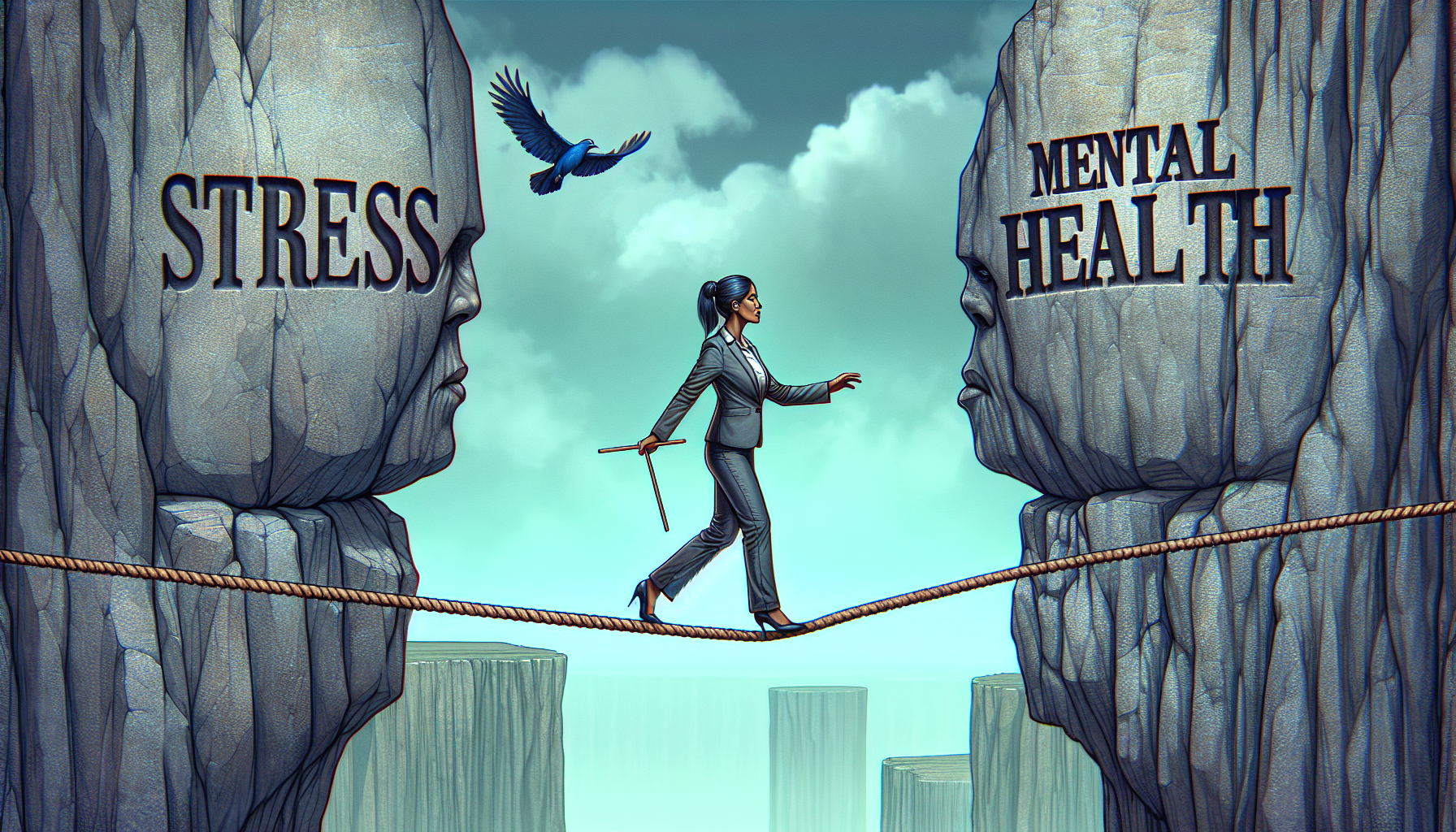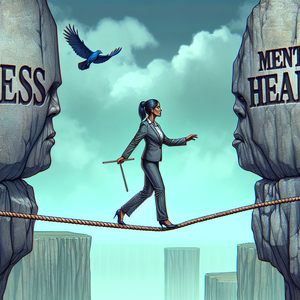The Dark Side of Consulting: Mental Health at McKinsey

Consulting is often characterized by tight deadlines, high client expectations, and a culture of performance. At McKinsey, the pressure intensifies due to the firm's commitment to delivering exceptional results. Employees frequently work long hours and may find themselves on the road for extended periods, away from family and friends. This lifestyle can lead to chronic stress, anxiety, and an overwhelming sense of burnout. According to a study by the American Psychological Association, employees in high-stress jobs are more likely to experience mental health issues, including anxiety disorders and depression. The consulting environment, particularly at elite firms like McKinsey, often exacerbates these issues due to the competitive culture. Employees strive for perfection, which can lead to an unhealthy work-life balance. A culture where “face time” is valued over productivity can leave employees feeling trapped in a cycle of overwork and fatigue.
Burnout: A Common Reality
Burnout is a prevalent concern among consultants, with symptoms including emotional exhaustion, reduced performance, and a feeling of detachment from work. A recent survey conducted by McKinsey itself revealed that a significant percentage of employees reported experiencing burnout at some point in their careers. Findings from this survey indicated that over 60% of respondents felt overwhelmed by their workloads, while nearly 50% stated they struggled to maintain a healthy work-life balance. One former consultant, Jane Doe (name changed for anonymity), shared her experience: "I loved the work initially, but the constant pressure to perform and the lack of downtime led me to feel completely drained. I often found myself unable to focus or take joy in my accomplishments." Such narratives are not uncommon, illustrating the harsh reality many face in the consulting realm. The emotional toll of such experiences can lead to long-term mental health issues, affecting not only the individual but the overall team dynamic and productivity.
Resources for Support
Recognizing the mental health challenges within the firm, McKinsey has made strides to address these issues. The company offers a variety of resources to support its employees, including counseling services, wellness programs, and access to mental health professionals. Moreover, McKinsey has implemented policies aimed at promoting work-life balance, such as flexible work arrangements and mandatory time off after intense project phases. The firm also encourages open discussions about mental health, aiming to destigmatize the topic among its ranks. This proactive approach is crucial, as it allows employees to feel more comfortable seeking help when needed. Additionally, McKinsey's commitment to training leaders to recognize signs of distress in their teams has been instrumental in fostering a supportive environment. For example, McKinsey recently launched an initiative called “Mind Matters,” which focuses on mental well-being through workshops and resources that empower employees to manage stress and prioritize their mental health. The importance of these initiatives cannot be overstated, as they contribute to creating a healthier work environment where employees feel valued and supported.
The Broader Implications for the Consulting Industry
While McKinsey's efforts are commendable, the mental health challenges faced by its employees reflect a broader issue within the consulting industry. Many firms operate under similar pressures, contributing to a culture where mental health is often sidelined. If the industry is to retain talent and maintain high performance, it must prioritize mental well-being alongside professional excellence. As the conversation around mental health continues to gain traction, consulting firms must adapt their cultures to ensure the well-being of their employees. This includes implementing comprehensive mental health initiatives, promoting a culture of openness, and encouraging work-life balance. By doing so, they can foster an environment where employees thrive both personally and professionally. Moreover, the ongoing pandemic has exacerbated these issues, with remote work blurring the lines between personal and professional life. Consulting firms must recognize these evolving challenges and adapt accordingly by enhancing their mental health resources and support systems.
The dark side of consulting is a reality that many McKinsey employees face, with mental health challenges arising from the high-pressure environment and relentless demands of the job. While the firm has made commendable strides in addressing these issues, the broader consulting industry must also recognize the importance of mental well-being. By prioritizing mental health resources and fostering a supportive culture, firms can cultivate a healthier and more sustainable workforce. Ultimately, the success of consulting firms like McKinsey hinges not only on their ability to deliver results but also on their commitment to supporting the well-being of their most valuable asset: their people. As the industry evolves, it is imperative that mental health becomes a core component of organizational strategy, ensuring that consultants can thrive both in their careers and in their personal lives.
Management Consultant - Organizational Behavior Specialist
McKinsey & Company, Boston Consulting Group, Bain & Company
Core Responsibilities
Analyze organizational structures and practices to enhance workplace culture and employee satisfaction.
Design and implement programs to improve employee engagement and reduce burnout.
Required Skills
Strong analytical and problem-solving skills to assess organizational issues.
Excellent communication skills for facilitating workshops and training sessions.
Unique Qualifications
A background in psychology or human resources management is often preferred.
Mental Health Program Coordinator
Consulting firms, corporate wellness programs, healthcare organizations
Core Responsibilities
Develop and oversee mental health initiatives aimed at supporting employees' well-being.
Collaborate with mental health professionals to create resources and workshops.
Required Skills
Project management skills to effectively coordinate programs and initiatives.
Familiarity with mental health policies and best practices in the workplace.
Unique Qualifications
Certification in mental health first aid or a related field is beneficial.
Work-Life Balance Consultant
Consulting firms, HR consulting agencies, corporate departments focused on employee wellness
Core Responsibilities
Advise organizations on strategies to promote work-life balance and reduce employee stress.
Conduct assessments to identify areas for improvement in workplace flexibility and employee satisfaction.
Required Skills
Strong interpersonal skills to engage with employees and leadership effectively.
Knowledge of best practices in organizational psychology and human resources.
Unique Qualifications
Experience in employee relations or organizational development is advantageous.
Employee Assistance Program (EAP) Counselor
Corporations, EAP service providers, consulting firms
Core Responsibilities
Provide confidential counseling services to employees dealing with personal or work-related issues.
Develop resources and workshops focusing on mental health and stress management.
Required Skills
Strong counseling and communication skills, particularly in a corporate environment.
Ability to create customized programs based on employee needs.
Unique Qualifications
A master’s degree in counseling or social work, along with licensure as a mental health professional.
Corporate Wellness Manager
Large corporations, health-focused organizations, consulting firms
Core Responsibilities
Design and implement wellness programs that promote physical and mental health within the organization.
Monitor and evaluate the effectiveness of wellness initiatives and adjust strategies as needed.
Required Skills
Knowledge of health promotion strategies and employee engagement tactics.
Strong data analysis skills to assess program outcomes and employee feedback.
Unique Qualifications
Certification in wellness coaching or health promotion can be beneficial.


